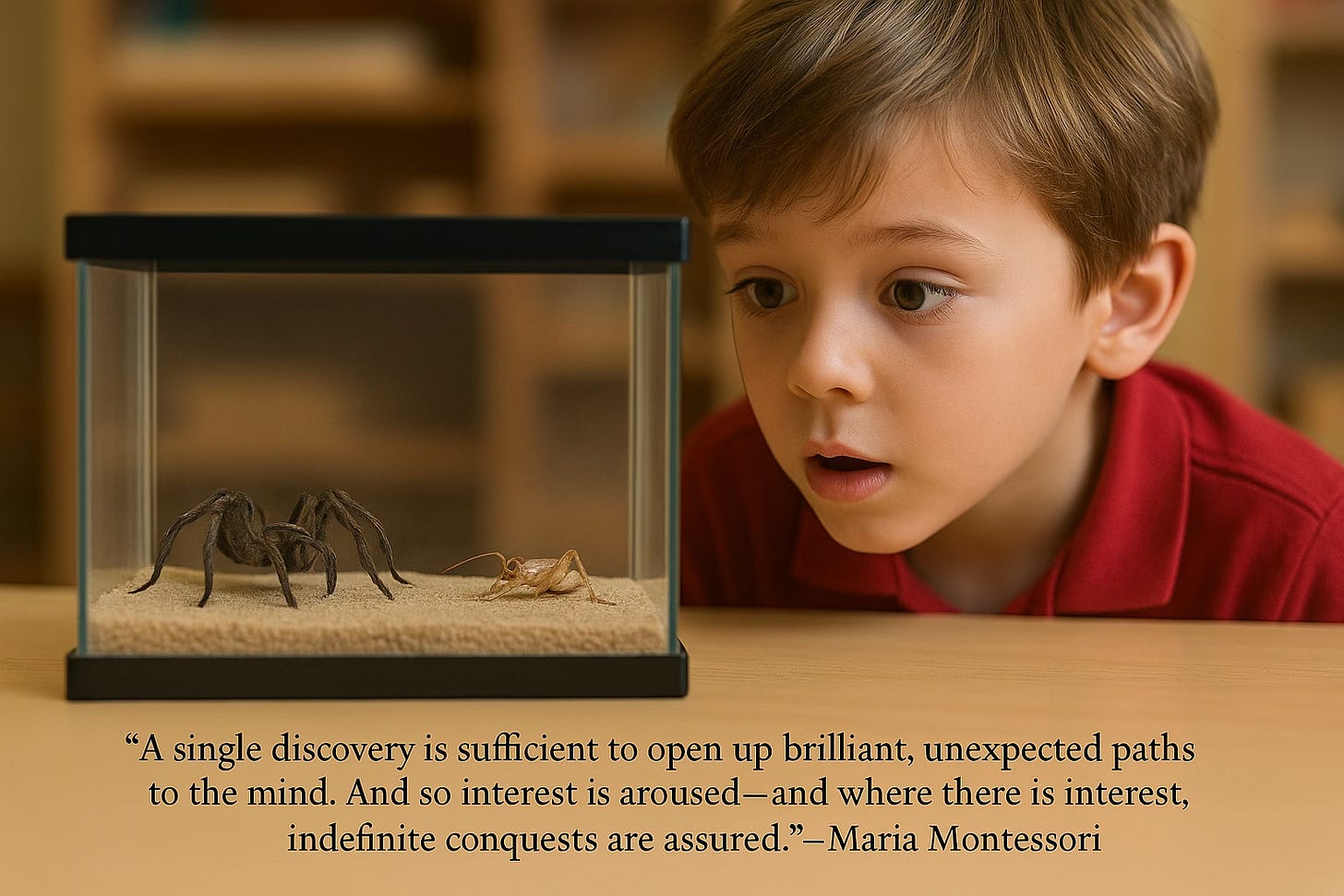Prepared Discoveries
Montessorians have heard of the Prepared Environment—Montessori’s term for the external conditions required for the healthy growth of the human organism.
Things like the grammar symbols, bead frames, and a knowledgeable guide–these are parts of the prepared environment.
But what is the aim of the prepared environment? What kind of experience do we expect children to have within such a well prepared environment?
We want them to make discoveries.
“Discovering a relationship oneself,” writes Montessori, “is something truly able to fire the imagination”
“A single discovery is sufficient to open up brilliant, unexpected paths to the mind. And so interest is aroused–and where there is interest, indefinite conquests are assured.” (Psychogeometry).
At Atlas Academy, when we think about preparing our classroom environments, we also think about preparing discoveries for the students.
The prepared environment is not enough.
Card material and charts about the functions of animals is not enough to ‘fire the imagination’.
Children need to see the animals in front of them—for instance, a wolf spider. And they need to see the wolf spider feed on crickets. And they need to see that the crickets exoskeleton remains in tact after the feeding, but it’s insides are gone. And they need to wonder about this for a while. Now their curiosity is peaked. And they are led, eventually, to the discovery of a process of digestion that unexpectedly begins OUTSIDE of the wolf spider itself; of a venom that liquifies the insides of the cricket, and of a pharynx that sucks up the liquified material. This discovery is surely sufficient to open up brilliant, unexpected paths to the mind!
BUT, many would argue, they are not ‘learning’ biology, or the functions of animals there. They are just witnessing one small aspect of one, single organism.
Here I can share with you a little known opinion by Maria Montessori. (And I know it’s little known because it’s ignored by training programs everywhere.)
Montessori believed that the systematic study of a science was appropriate for the adolescent, but not for the elementary child. We do not present the system of biology, or even the functions of animals, to the elementary child. “We only offer the means to prepare the mind for systematic study.” We do not offer the elementary child the systematic study of a topic, but only “mental exercises relative to” that topic.
After witnessing the marval of ‘external chemical digestion’, children are poised for further inquiry, and “indefinite conquests are assured”.
“The prepared mind is thus made active, and when it is time to receive true systematic study (at secondary schools), the pupil will resemble an intelligence that meets the teaching halfway with great interest and with an amazing capacity for understanding.” (Psychogeometry)
At Atlas Academy, we do not merely prepare environments for our students, we prepare discoveries.




